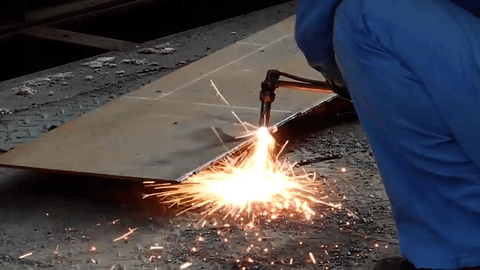
This story is part of Grow PA, a reported series on economic development across 10 Pennsylvania counties underwritten by the Chamber of Commerce for Greater Philadelphia. Sign up for our weekly curated email here.
The ongoing lament from manufacturers in Western Pennsylvania and elsewhere is they can’t find qualified workers.
But with advanced manufacturing continuing to play such a critical role in the local economy, according to a new report from the Brookings Institution, it’s important to find a solution to this conundrum.
Enter Making Your Future, a new initiative from the Greater Pittsburgh Metals Manufacturing Community and Catalyst Connection. Their research finds that by 2025, there will be a shortage of 30,000 workers in Western Pennsylvania. And to date, much of the focus has been on retraining workers to fit the available jobs.
But Making Your Future looks at both sides of the equation, and aims to work with businesses and workers to help them make connections. It’s one of just two-dozen projects across the country designated as an Investing in Manufacturing Communities Partnership (IMCP) by the U.S. Department of Commerce.
Catalyst Connection CEO Petra Mitchell said the Pittsburgh IMCP, which includes 24 stakeholder groups, set a goal of growing manufacturing jobs by 2 percent annually for the next 10 years as part of the partnership.
“The basic premise is to link manufacturers and employers to solve this problem,” she said. “Part of the plan is to make it clear to employers that they need to be able to show they’re a good place to work, have a good company culture.”
A big piece of the project will encourage manufacturers to develop apprenticeship programs, where student-employees can “earn and learn,” becoming credentialed for a professional career while earning a paycheck. It will also focus on assessment: helping job seekers determine which skills they already have that will qualify them for manufacturing jobs.
“The subset of job seekers we’re targeting are those who are currently or who might consider becoming makers,” Mitchell said. “They would already have the creativity, the problem-solving ability and desire to work with their hands.”
The program was developed in conjunction with a new Brookings report, which found, among other things that job seekers don’t know how to use the systems currently in place and may not be aware of jobs available. The report recommends supporting innovation clusters in advanced manufacturing, life sciences, and autonomous systems.
According to the Brookings report, advanced manufacturing is a key economic driver. As of 2015, there were more than 100,000 jobs in automation and industrial machinery, metals and metal processing, chemicals, engineering services, electronics, and energy.
“These industries represent 67 percent more jobs than expected given the size of the Pittsburgh economy,” the report found. “Post-recession job growth in advanced manufacturing reached 11.3 percent, 2.5 times the pace of the Pittsburgh economy as a whole. Moreover, productivity, a key measure of technology deployment and the value of production, is 7 percent higher in Pittsburgh’s advanced manufacturing industries than the national average.”
Mitchell says the success of any innovation hub has to begin with employers.
“When employers get engaged in the community it’s going to help build that future pipeline,” she said.
The Brookings report found, among other things that job seekers don’t know how to use the systems currently in place and may not be aware of jobs available. “That finding really informed how we’re going to approach this potential population of workers,” Mitchell said.
Workers can use the site not only to find jobs and employers but will be able to assess their skills and see where they’ll fit.
Eventually, Mitchell would like to add self-training tools for workers, so, if a potential job requires the ability to read blueprints, the job seeker could access an online curriculum. “We want to make sure we’re helping prepare workers for the next generation of manufacturing jobs as much as possible.”
[googlemaps https://www.google.com/maps/d/u/0/embed?mid=1fAjLwwFCWeFH3RWL0dxRnqZF5y4&w=300&h=150]
Join the conversation!
Find news, events, jobs and people who share your interests on Technical.ly's open community Slack

Philly daily roundup: Women's health startup wins pitch; $204M for internet access; 'GamingWalls' for sports venues

Philly daily roundup: East Market coworking; Temple's $2.5M engineering donation; WITS spring summit

Philly daily roundup: Jason Bannon leaves Ben Franklin; $26M for narcolepsy treatment; Philly Tech Calendar turns one

